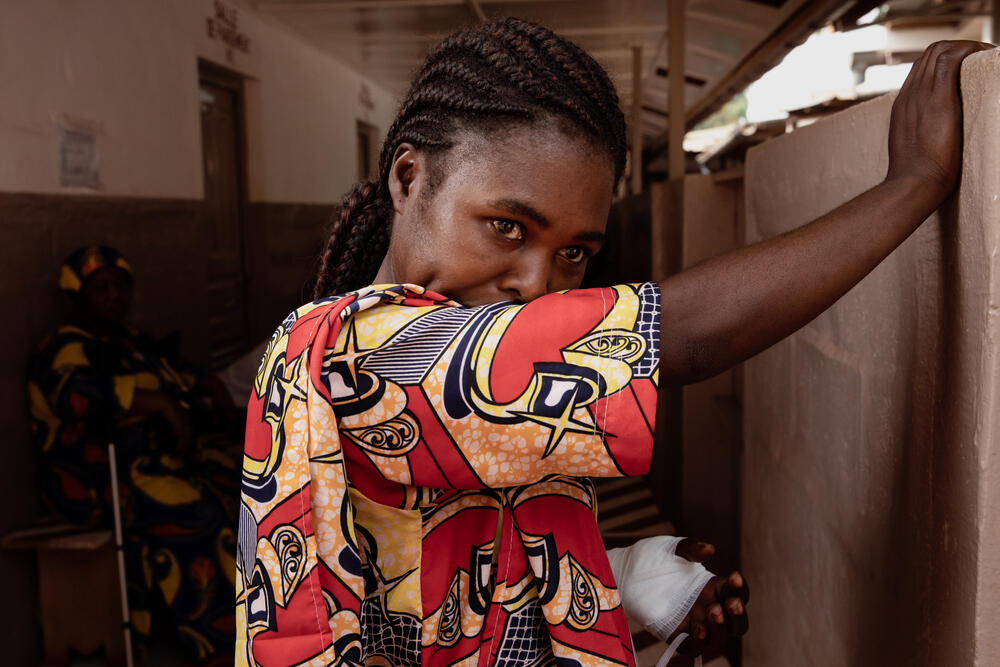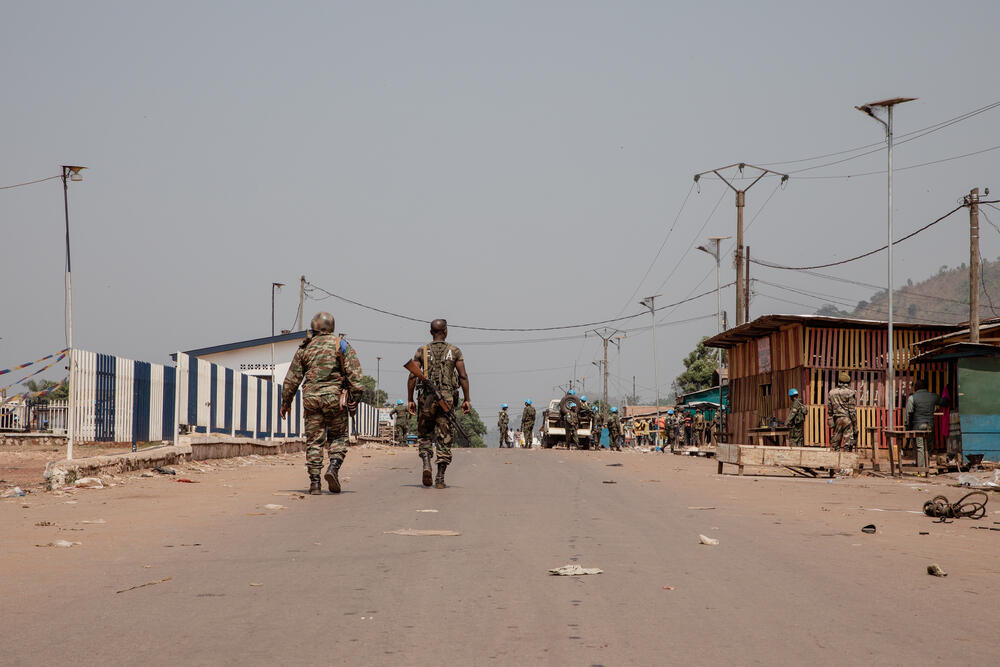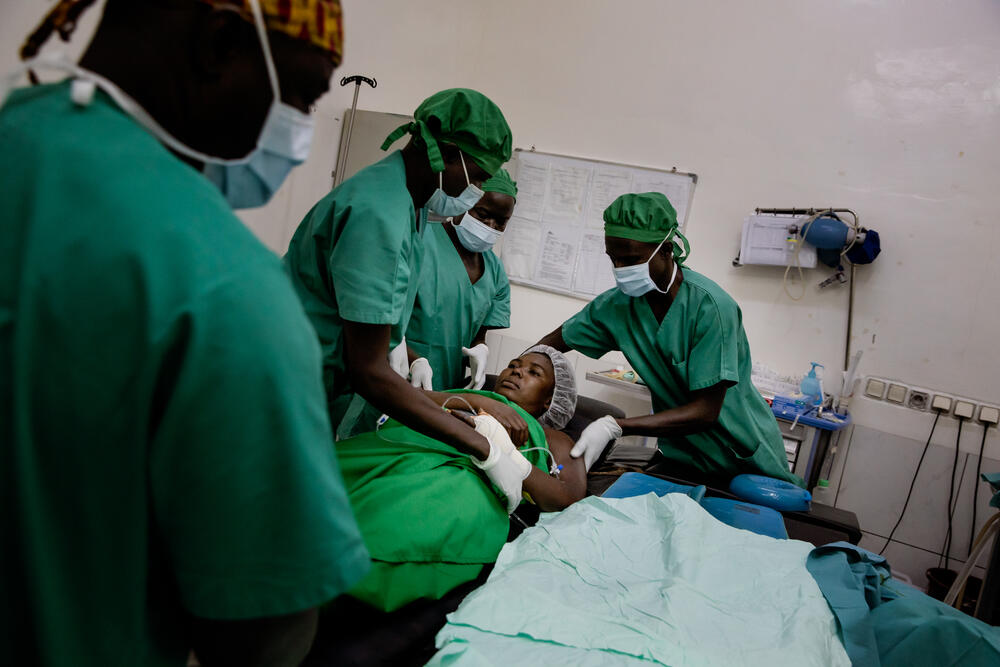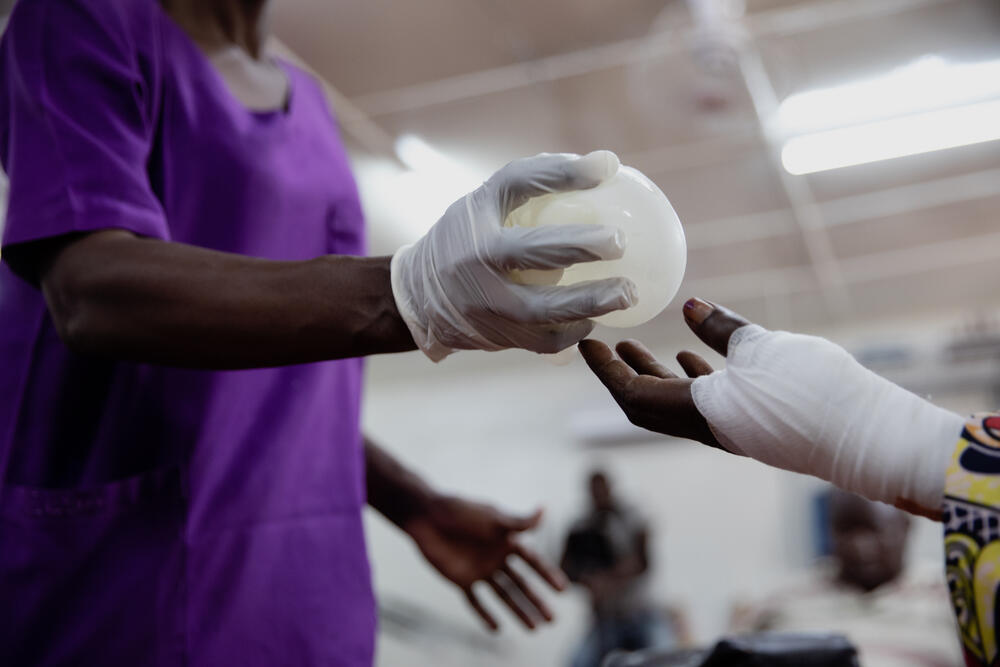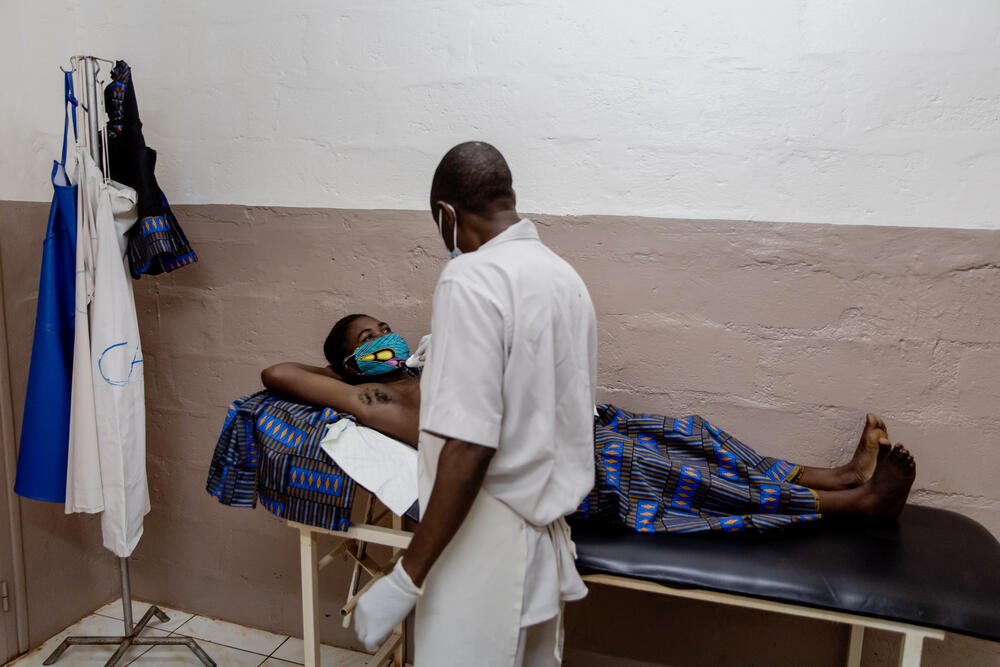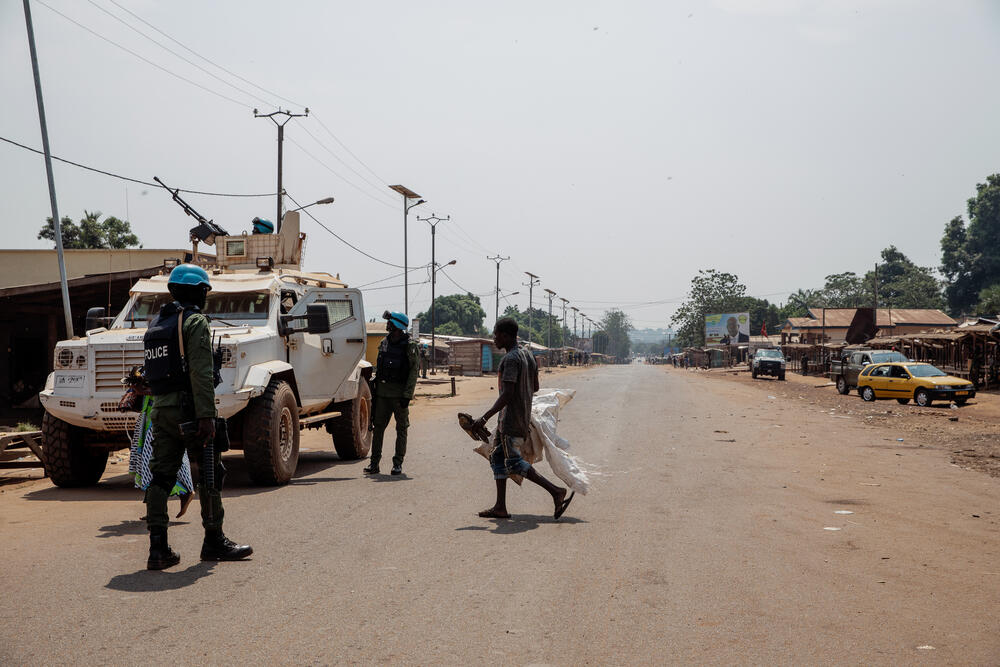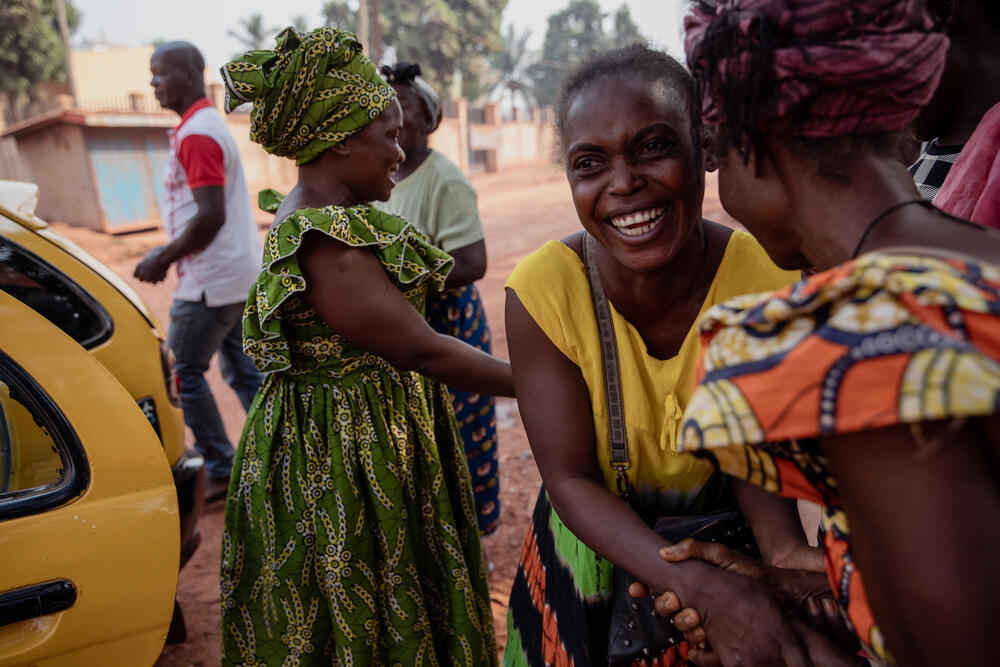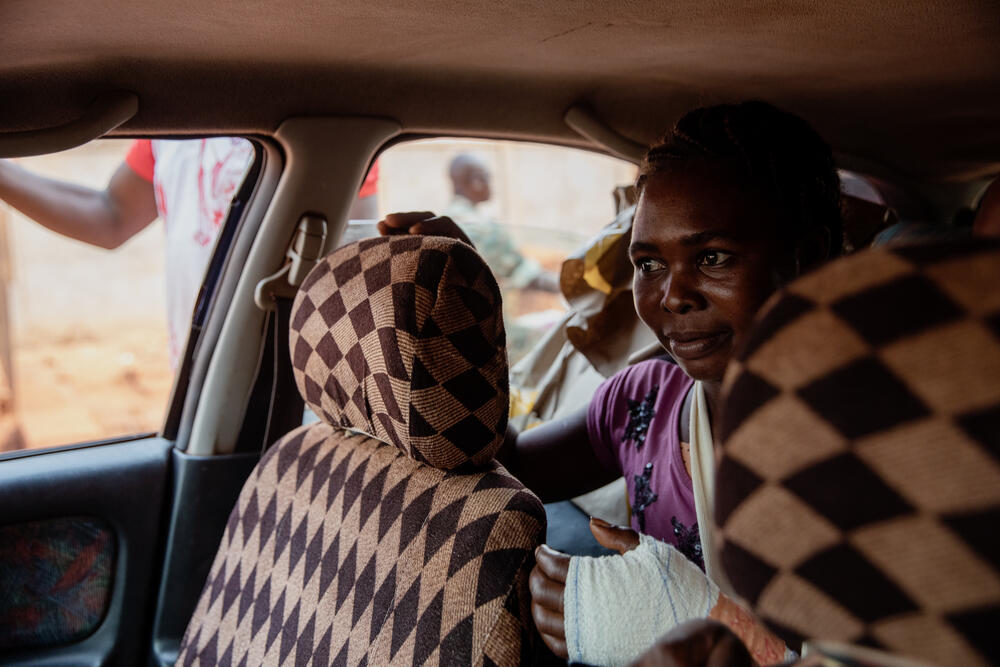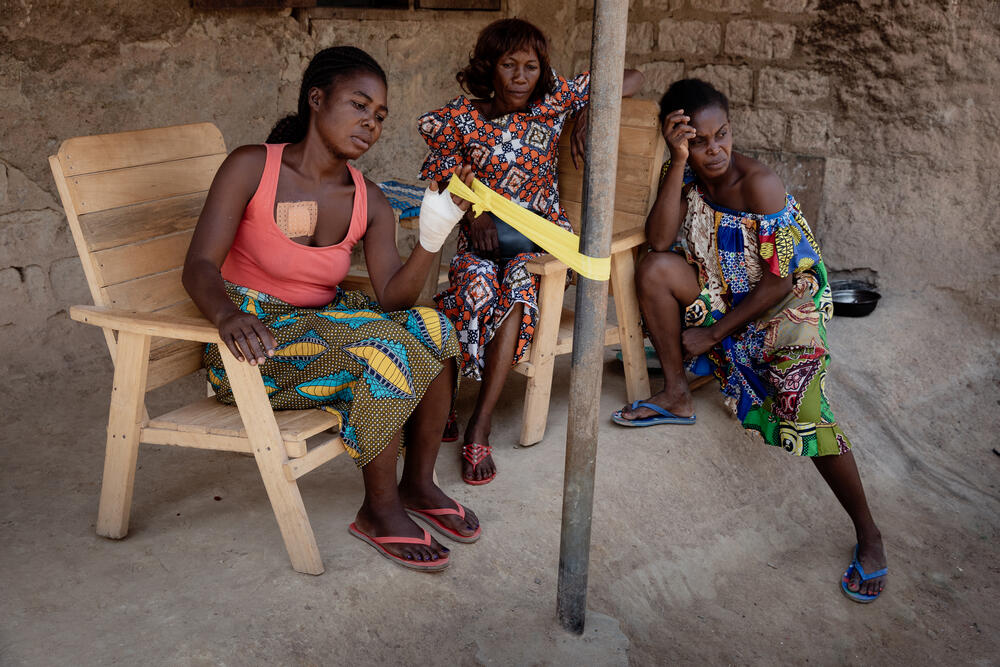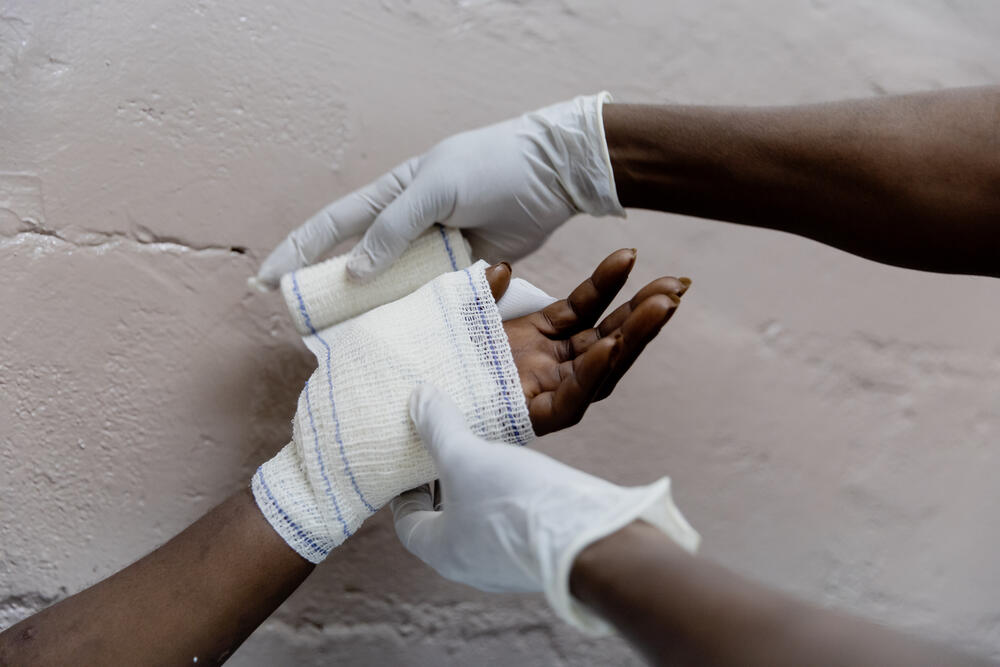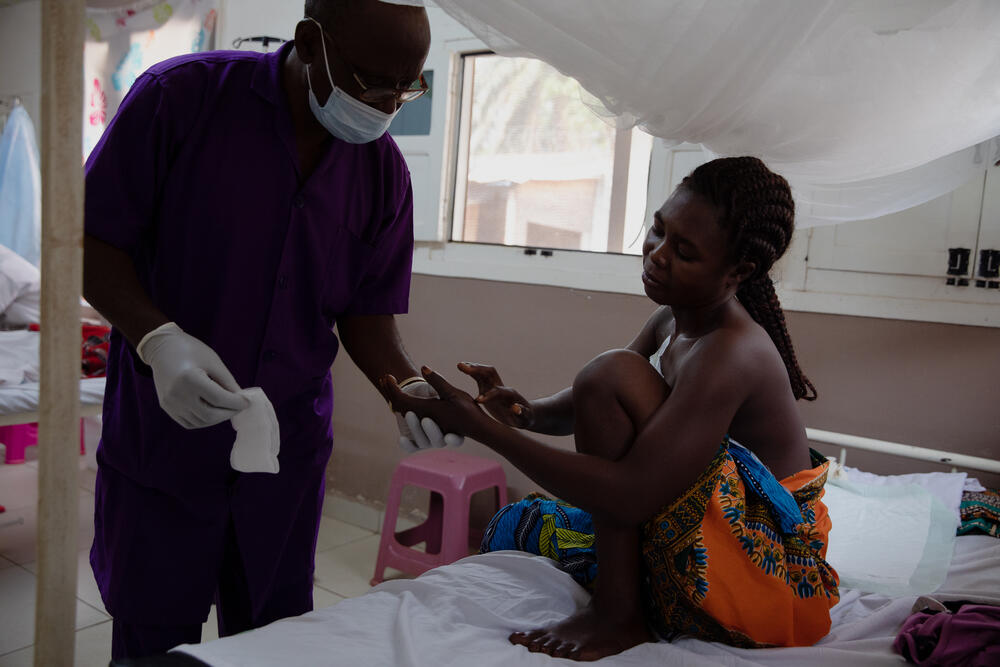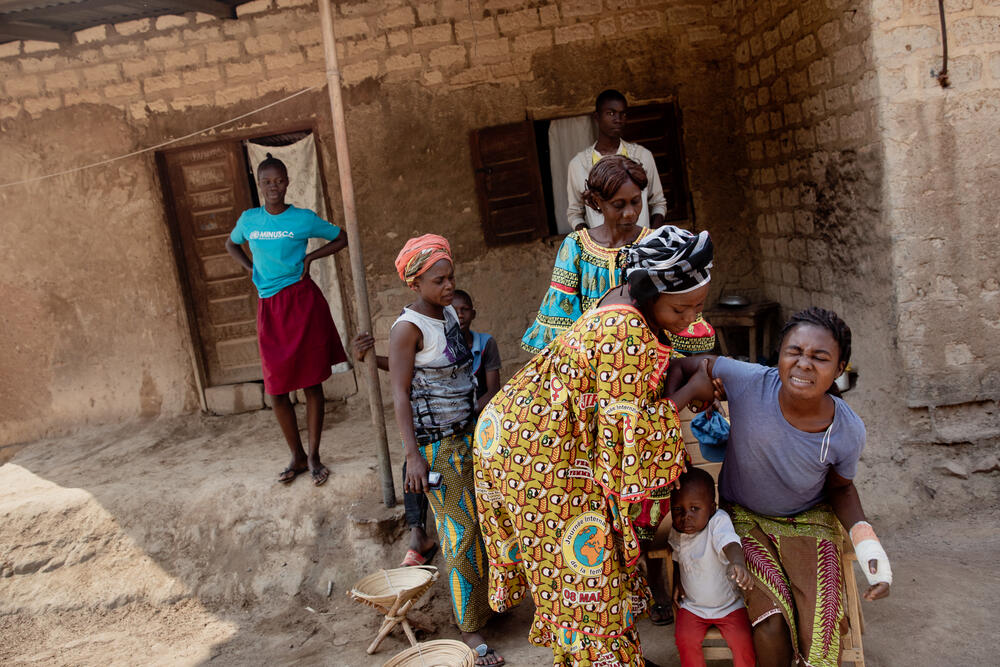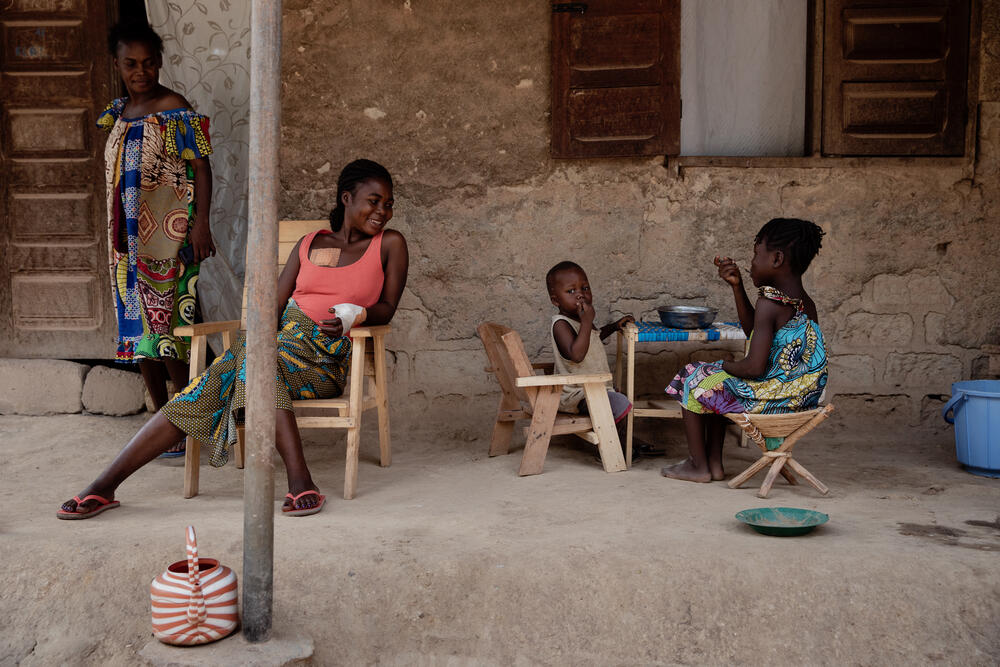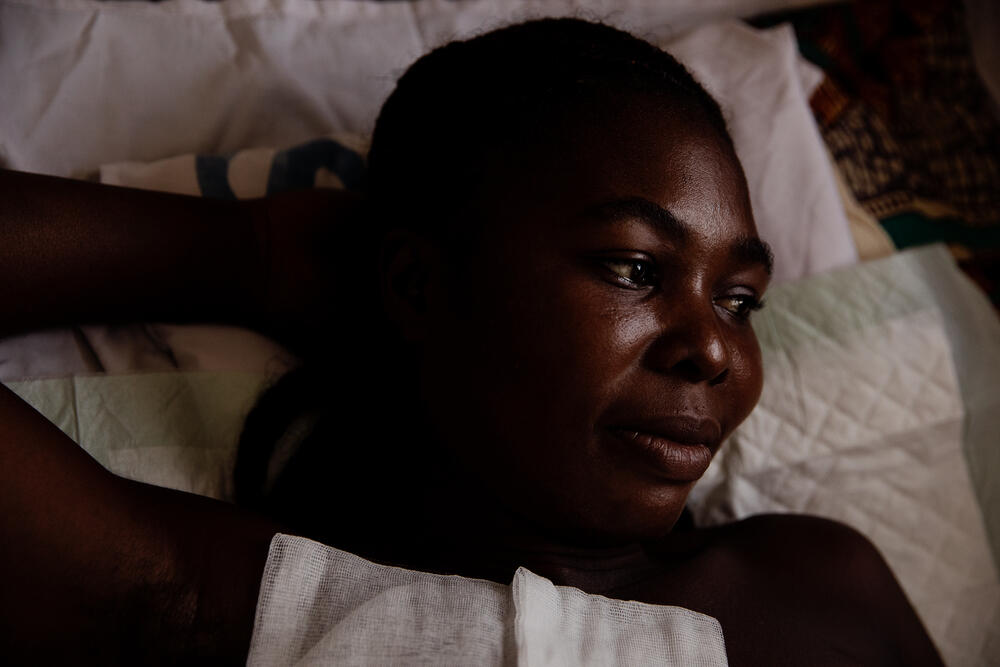This is one of the bullets that tore through France Beldo's home...
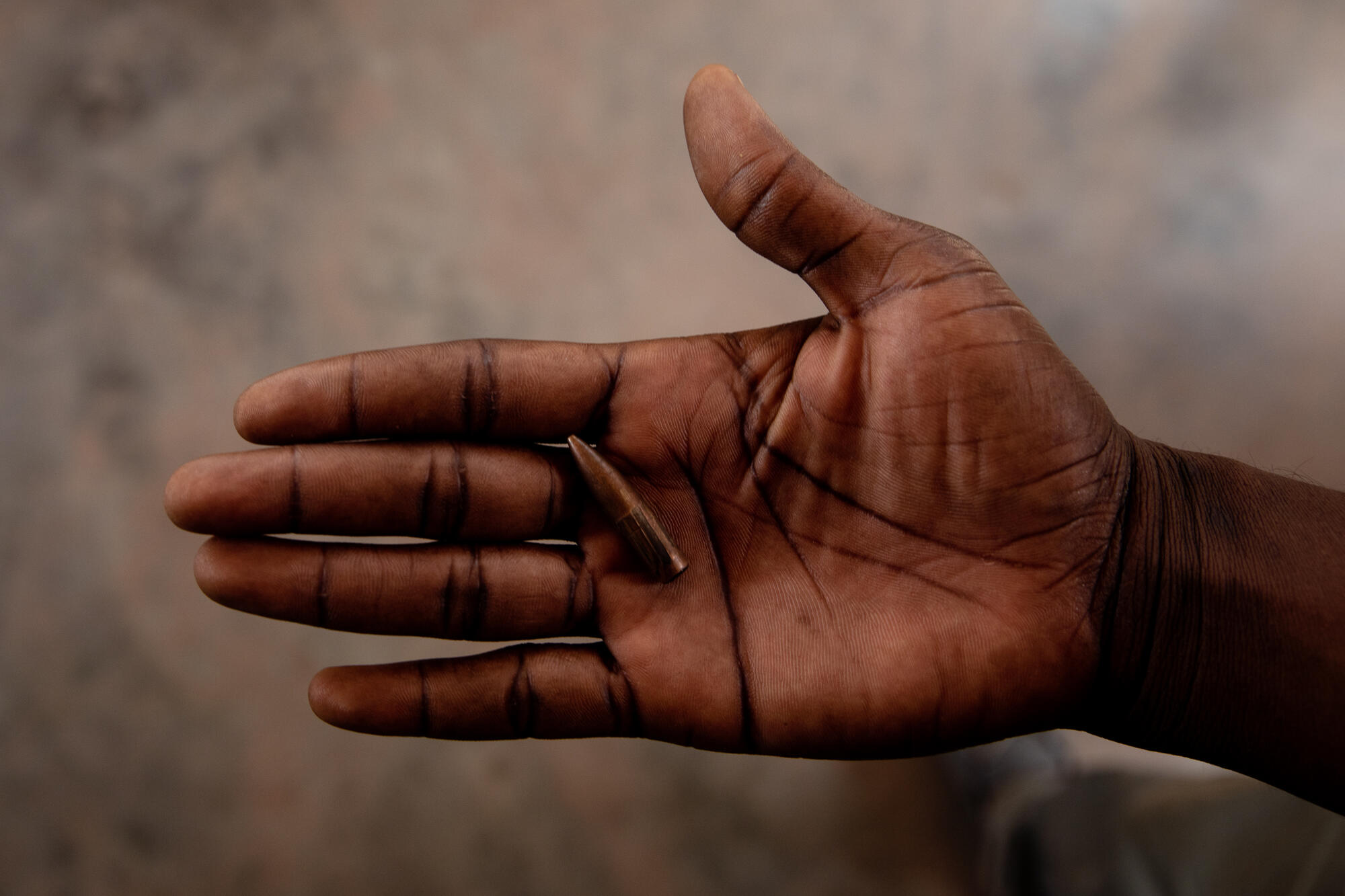
Since December, violence has gripped the Central African Republic (CAR). A coalition of armed groups – known as the Coalition des Patriotes pour le Changement (CPC) – has clashed with government forces backed by the UN and foreign troops in the wake of presidential and general elections.
The security and humanitarian situation has deteriorated rapidly.
After offensives across the country, fighting reached the outskirts of the capital, Bangui, on 13 January 2021.
That day, 31-year-old France Beldo was shot.
France was immediately taken to SICA Hospital, a surgical trauma facility run by Médecins Sans Frontières / Doctors Without Borders (MSF)
She was hit by a stray bullet while at home on her terrace in Damala neighbourhood.
The bullet passed through her hand, hit her chest and lodged into her shoulder. Luckily, there was no damage to any of her vital organs.
“We were near home when I heard gunfire. We went inside to hide," says France.
“The shooting eased off, so we went out on the terrace. I was talking to my daughter when a bullet hit me.
“I wondered if I was going to survive.
“They took me on a motorbike [to SICA hospital] and I regained consciousness."
“They gave me medication, first aid and an X-ray. Three days later I had my first surgery, ” says France.
MSF teams provide free surgery and trauma care in the 80-bed SICA hospital, built in 2017.
The hospital has an emergency room and two operating theatres, and offers comprehensive treatment, including post-operative care and physiotherapy.
In the wards, the majority of trauma patients are road traffic accident victims. They are treated alongside war-wounded people and survivors of violence with gunshot or stab wounds.
“After the dressings, they take me to have physiotherapy for my hand. I exercise it, and they put cream on it.
“Then there’s the massage, and I touch and feel objects for them to evaluate my mobility. I have a massage on my leg too. They do a lot of good work on me”.
After bone or muscle surgeries, recovery often takes months or even years. The physiotherapists of the MSF SICA Hospital play an essential role in a patient’s healing process.
In order to ensure a full recovery, regain motion and avoid disability, they intervene as soon as the operation is over.
On 22 January, France was able to go home
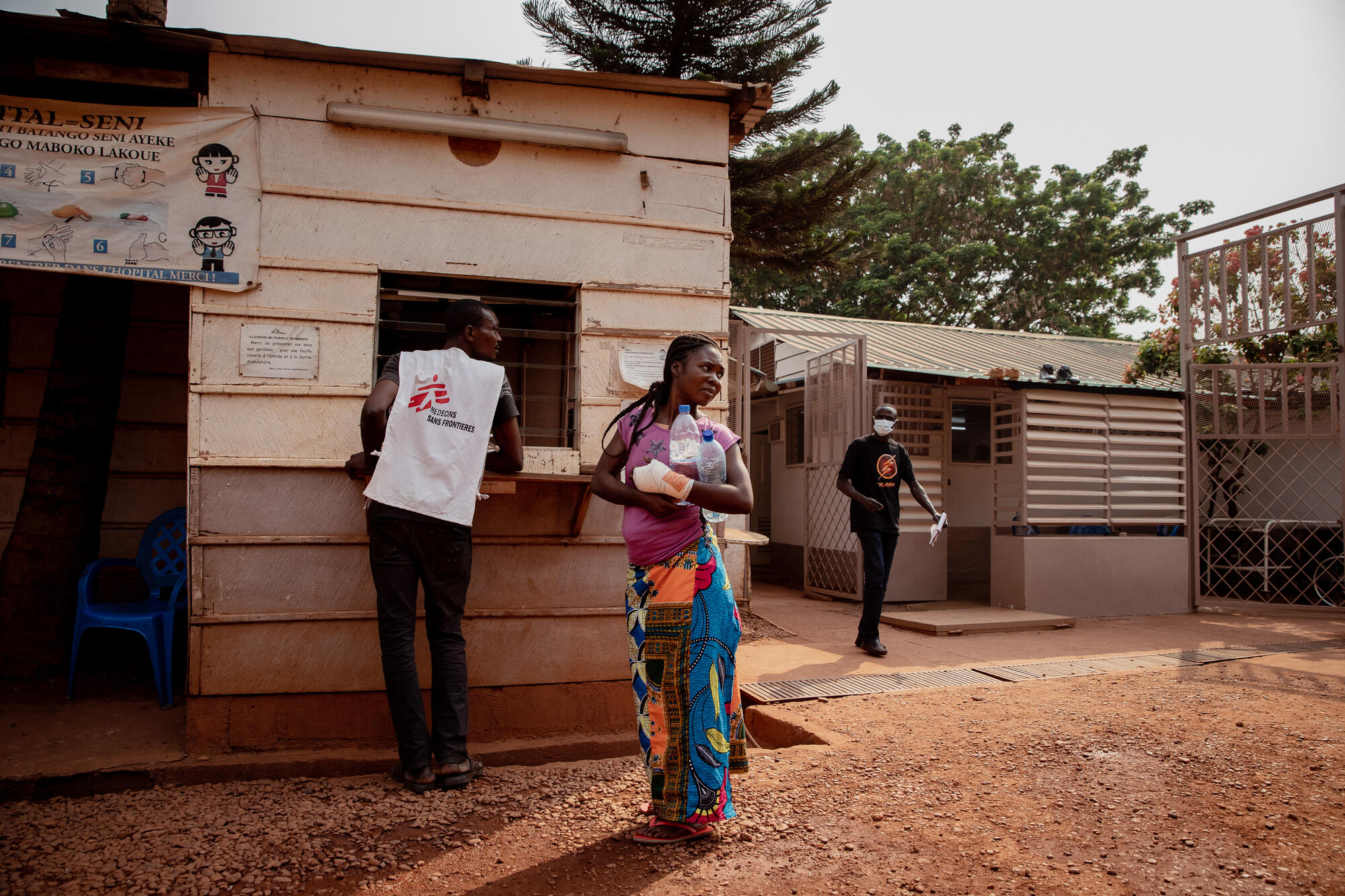
France completed her inpatient treatment on 22 January but will need to return regularly to SICA Hospital for follow-up appointments – including dressing care and physiotherapy.
However, the day before she was discharged, the government announced a 15-day state of emergency across the country.
Tensions continue to run high.
In a country already suffering from years of civil war and facing a chronic healthcare crisis, this latest cycle of violence is hitting already vulnerable people hard.
At the gates of SICA Hospital, France and her family say goodbye to the relatives of other admitted patients, before getting into the taxi that will take them home.
During her stay at the hospital, France’s sister, aunt and mother helped to take care of her, supporting her to wash and eat, while they often slept outside waiting for visiting hours to begin.
“To all my family, I say a big thank you”
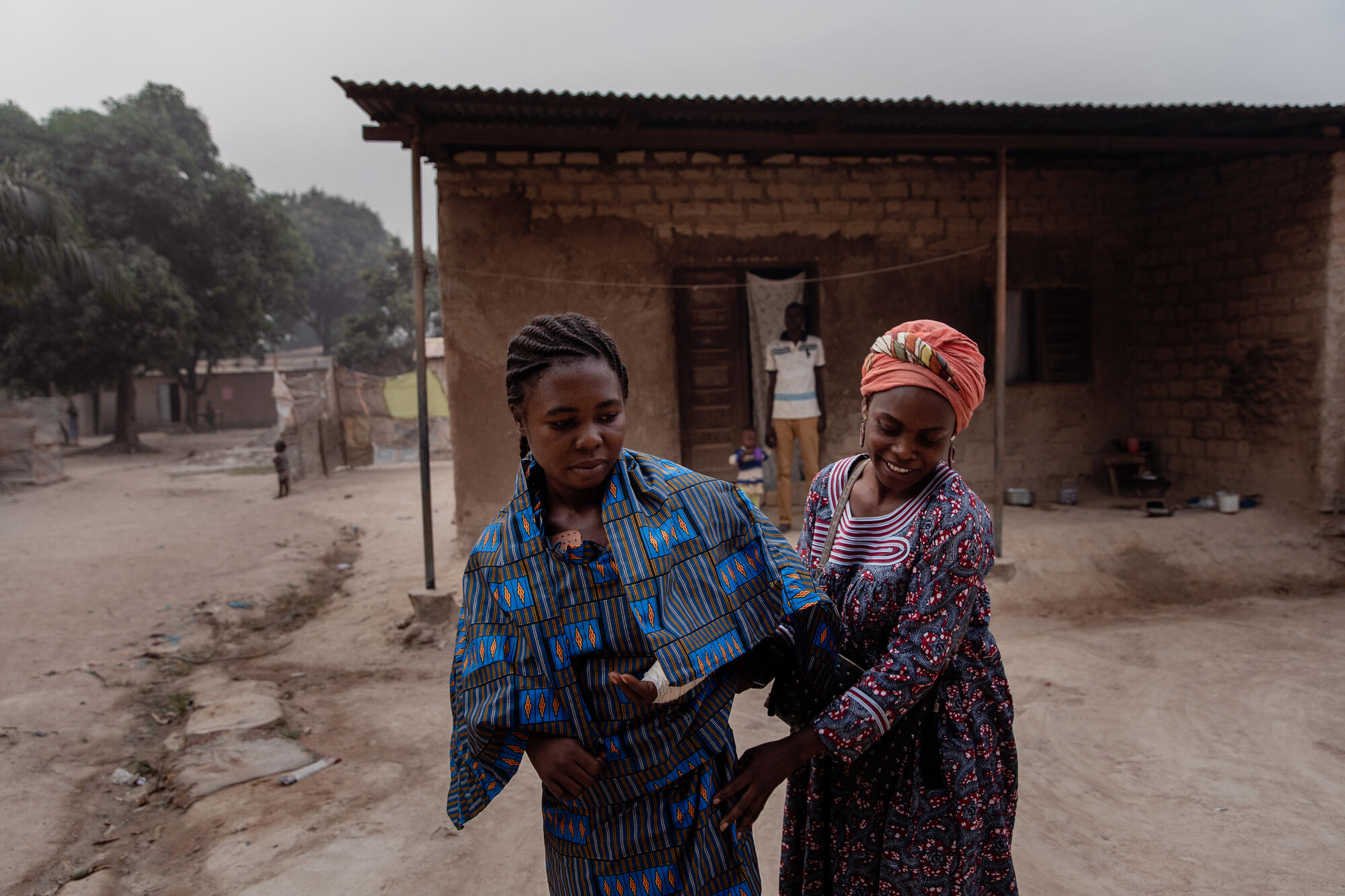
France lives with Claire, her sister, and their respective children.
By practising her physiotherapy exercises twice a day at home, she hopes to regain full and painless motion as quickly as possible.
She moves her fingers more freely, but her forearm still hurts.
“I’m a shopkeeper. I sell small stuff here in my home. But since the incident, all my money’s gone. I don’t sell anything anymore,” says France.
She hopes to be able to stand up, walk, and get rid of the pain to resume her activities.
France's health has improved but she still requires outpatient care on a regular basis. She often feels tired and her left leg causes pain. At times she can barely walk.
A bullet is still lodged in her left shoulder.
“For now my arm’s immobilised, and I can’t get around. I’m often hungry, but I don’t have the money to feed myself properly.
"The bullet wound has now paralysed one of my legs. I have nerve pain and the wound where the bullet penetrated hurts. My chest and my arm hurt, too”.
France is now at home with her two children, Estive and Jolivia.
Here, she sits with them as they eat their breakfast on the same terrace where their mother was hit by a stray bullet on 13 January.
She worries about their future.
“The children have school for a month, and then the shooting and fighting start up again, and they stop going," she says.
"I want it to stop for our children to be safe.
"It has to stop so that the country can be peaceful again. And so that we, the people, can work and have money. It worries me.
"We can’t live with weapons all the time”.
Get the latest MSF news, stories and updates straight to your inbox.
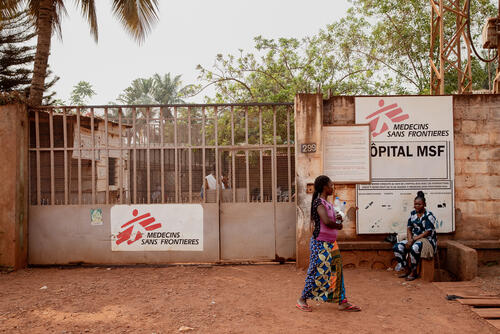
MSF in the Central African Republic
Since gaining independence in 1960, the Central African Republic has been plagued by political instability and violence. It remains one of the poorest countries in the world, despite considerable natural resources.
Despite a peace deal signed in February 2019, extreme violence has continued in many regions of the country, exacerbating the already immense humanitarian needs.
Médecins Sans Frontières/Doctors Without Borders (MSF) first began work in Central African Republic in 1997. Our teams run projects for local and displaced communities in eight provinces and in the capital, Bangui, providing primary and emergency care, maternal and paediatric services, trauma surgery and treatment for malaria, HIV and tuberculosis.

